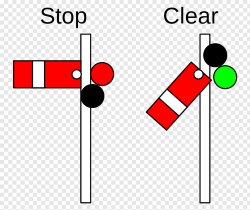
All News
Daily Bridge in New Zealand

The Importance of Signalling.
Today’s deal might seem straightforward though when at five of the seven tables where 4S by South was the contract, the declarer made 10 tricks, one more than which they were entitled. The only reason can be poor signalling. So, maybe it is worth a look.


| East Deals E-W Vul |
|
||||||||||||||||||||||
|
|
|
|
|||||||||||||||||||||
| West | North | East | South |
| dummy | you | ||
| Pass | 2 ♠ | ||
| 3 ♥ | 4 ♠ | All pass |
South opens a Weak 2 in spades and very soon is declarer in 4![]() . Your partner leads
. Your partner leads ![]() K. Using whatever carding method you play, which card do you play at trick 1?
K. Using whatever carding method you play, which card do you play at trick 1?
We can look at the bidding when we see all four hands. For the meantime, let’s just concentrate on why the contract of 4![]() made. The above is what East saw in dummy with their partner leading a high heart, either
made. The above is what East saw in dummy with their partner leading a high heart, either ![]() A or
A or ![]() K.
K.
Whatever one’s signalling method is, East should realise that continuing hearts is not a good idea. A second heart will set up dummy’s ![]() Q and were West, who has overcalled hearts, to have six of them, then South will ruff the second round of hearts.
Q and were West, who has overcalled hearts, to have six of them, then South will ruff the second round of hearts.
“Switch suit, please partner”
In those five cases mentioned, West must have continued with three rounds of hearts, allowing a club discard on the third round. How does East get West to switch, even before the second round of the suit is played?
Some play an encourage/ discourage signal on the honour lead. Thus, East discourages the heart continuation by either playing “high discourage” or “low discourage” depending which method you use. Make the signal as clear as you can. Thus, high discourage would be with ![]() 9 while low discourage would be made with
9 while low discourage would be made with ![]() 4.
4.
If your method is that the lead of the king asks your partner to give count in the suit (that is number of cards held) then all East can do is answer truthfully by playing their highest or lowest heart to show a three-card suit again dependent on method. Then, West knows to switch. These were the four hands:
| East Deals E-W Vul |
|
||||||||||||||||||||||||||||||
|
|
|
|||||||||||||||||||||||||||||
|
|||||||||||||||||||||||||||||||
| West | North | East | South |
| dummy | you | ||
| Pass | 2 ♠ | ||
| 3 ♥ | 4 ♠ | All pass |
After the immediate diamond switch, there should be no pressure on the defence even if West were to try and cash two rounds of clubs before playing a second high heart. There are 4 tricks for the defence…down one…no pressure on the defence as long as West did not cash a second high heart.
Of course, thanks to a slightly fortunate lie of the diamond honours, even 1 down in 4![]() is no great result for East-West since they can make 11 tricks in either clubs or hearts, 5
is no great result for East-West since they can make 11 tricks in either clubs or hearts, 5![]() being the better contract, cold on any 3-2 heart break after the lead of a spade.
being the better contract, cold on any 3-2 heart break after the lead of a spade.
West’s single suited overcall did not help the cause. A better sequence might have gone:
West North East South
2![]()
3![]() 4
4![]() 4NT Pass
4NT Pass
5![]() ?
?

Showing two suits
3![]() showed hearts and a minor with 4NT asking which minor. North may choose to bid on to 5
showed hearts and a minor with 4NT asking which minor. North may choose to bid on to 5![]() which should provide East-West with +300. If not, the club game will yield +600.
which should provide East-West with +300. If not, the club game will yield +600.
That is all a lot better than conceding -420 where the defence would have been found wanting. Not yours, of course.
Time to open the bidding. Well, you are going to, but with what? It is Teams, All Vul
|
| West | North | East | South |
| ? |
Richard Solomon
Go Back View All News Items
